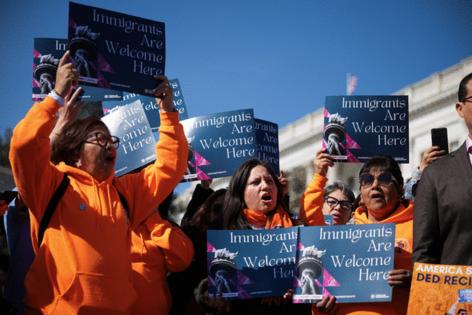Commentary: Democrats are choosing ideology over electability
Published in Op Eds
In the shifting sands of American politics, the Democratic Party stands at a pivotal moment. Frequently cast as the party of “Yes,” Democrats have embraced a host of progressive causes — abortion rights, expansive immigration policies, and LGBTQ+ inclusion, to name a few.
This tendency often places them on the minority side of issues where public opinion leans heavily the other way: the 20 side of an 80-20 split. Conversely, Republicans, dubbed the party of “No,” have thrived by aligning with the majority 80 side.
If Democrats hope to reclaim electoral dominance and preserve a balanced political system, they must learn to say “no” to some of their more divisive positions.
Consider abortion. Democrats champion largely unrestricted access, a stance that resonates with a vocal minority. Yet, a 2023 Gallup poll reveals that 60 percent of Americans favor abortion being legal only under certain circumstances, while 34% support it in all cases. By clinging to the 20% view, Democrats risk estranging the broader electorate who seek a middle ground.
Illegal immigration tells a similar story. Democrats often emphasize compassion and pathways to citizenship, but a 2022 Pew Research Center survey found that 70% of Americans prioritize reducing illegal immigration. The party’s reluctance to focus on enforcement leaves them open to accusations of being soft on border security, a position that fails to inspire the majority.
LGBTQ+ issues further highlight this disconnect. Democrats have been trailblazers for equality, yet some of their stances — like supporting biological men in women’s sports — face stiff resistance. A 2021 Gallup poll showed that 62% of Americans believe transgender athletes should compete based on their biological sex, not gender identity. Advocating for biological men in women’s locker rooms, while rooted in inclusivity, often feels esoteric to the typical voter.
Then there are more extreme examples: neopronouns, keying Teslas, looting and rioting, fiery but mostly peaceful protests, burning the American flag or saluting alternate flags, and encouraging assassinations. These actions, linked to fringe elements of the left, cast a shadow over the Democratic brand. Though the party may not explicitly endorse such behaviors, its hesitance to denounce them outright can be perceived as tacit approval, alienating voters who value law and order.
Another glaring example of Democrats’ struggle with the 80-20 divide is their difficulty in answering a seemingly simple question: “What is a woman?” When pressed, many Democratic leaders dodge the question or offer convoluted responses, fearing backlash from progressive factions.
Yet, a 2023 YouGov poll found that 79% of Americans believe defining “woman” based on biological sex is either somewhat or very important. This disconnect highlights the party’s reluctance to affirm commonsense definitions, alienating voters.
History offers a cautionary tale. Homosexuality, once illegal and socially taboo, is now embraced by a majority of Americans — a shift driven by decades of advocacy and cultural evolution. Democrats played a key role in this transformation, but they must now ask: what’s next? Are there additions to the LGBTQ+ community — perhaps identities or practices currently illegal or widely opposed — that the party might champion prematurely?
To start winning again, Democrats must master the art of saying “no.” This won’t be easy — their base has grown accustomed to hearing “yes” on various issues, from social justice to environmental reforms. By strategically rejecting their most contentious positions, Democrats can broaden their appeal. For instance, moderating their stance on abortion to align with the majority who favor restrictions or emphasizing border security alongside immigration reform could bring them closer to the 80% side of these debates.
This shift isn’t about abandoning core values; it’s about pragmatism. Take education: Democratic support for progressive curricula has sparked parental backlash. A 2022 American Federation of Teachers survey showed that 58% of parents want schools to prioritize core academics over social issues. Saying “no” to divisive educational policies could rebuild trust with families.
America deserves a balanced political system in which both parties offer credible alternatives. If Democrats don’t start putting their foot down, the nation risks sliding into an ideological monopoly dominated by a single party’s vision. The stakes are high: a healthy democracy thrives on competition, not conformity.
The path forward requires Democrats to balance idealism with realism. Saying “no” to some of their base’s demands while advancing justice and equality could reconnect them with the broader electorate.
It’s a delicate dance but a necessary one. If they fail to adapt, Democrats risk unprecedented electoral losses and eroding a vibrant, two-party system. Their survival — and the country’s political health — depends on it.
____
ABOUT THE WRITER
Nafees Alam is a professor in social work at Boise (Idaho) State University. He wrote this for InsideSources.com.
_____
©2025 Tribune Content Agency, LLC.




























































Comments